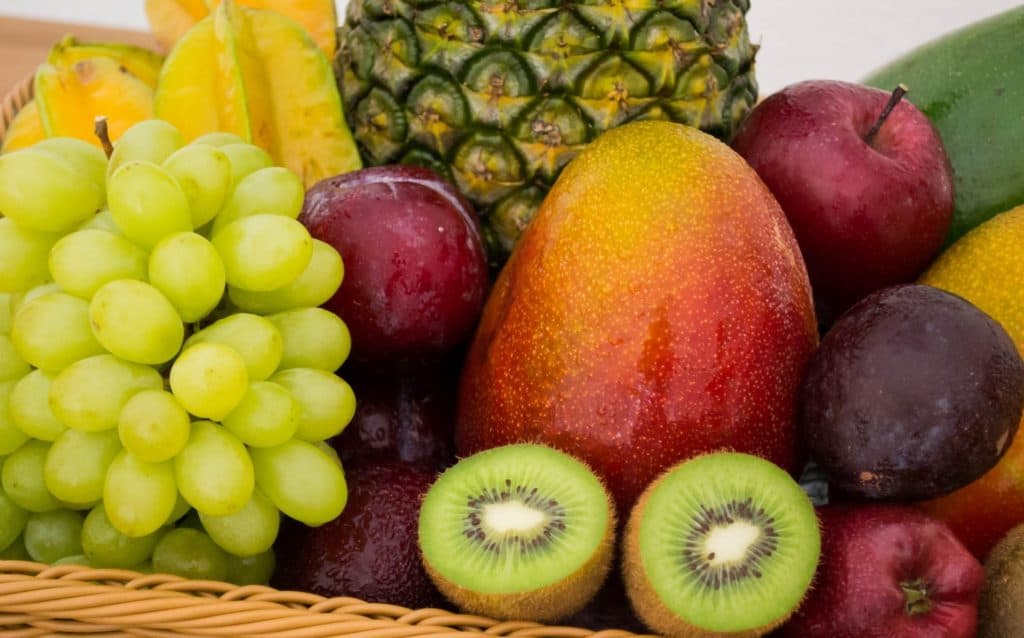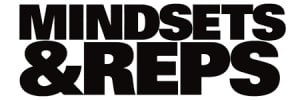
Fruit is a great option for a quick and convenient pre workout snack. It provides fast energy and doesn’t sit heavy in your stomach like other starchy carbohydrate sources. It’s also suitable for early morning workouts, where you may want energy but aren’t particularly hungry.
Fruits are virtually 100% carbohydrate. To choose the right fruit, it’s important to understand how carbs are used for workouts.
Whether it’s lifting weights, running, CrossFit, or playing sports, carbohydrates will be the primary and preferred fuel source to provide energy for those activities. Carbs can optimally fuel both high intensity and low intensity exercise because of the unique way they are metabolized.
Fruits are not only a great source of carbohydrates; they also have a high water content which can aid in hydration. Most people also digest fruit with no issue, compared to other carb sources which may cause bloating and discomfort.
Not all fruits are the same. Different fruits have different nutritional properties. But it’s not as if some are good and some are bad. It’s more so that certain fruits are best utilized in specific situations.
The words sugar and carbohydrate are often used synonymously, but they are broad terms in general. The word sugar can mean glucose, fructose, sucrose (table sugar, 50/50 split of glucose and fructose), or lactose (sugar found in milk products).
These different sugars are applicable for different types of workouts. Overall, glucose is the best option for resistance exercise since glucose is readily used by muscle and can be stored in muscle as a reserve energy source.
With that said, the best option for a particular fruit will be one with a high glucose ratio. Some fruits are high in glucose, some high in fructose, and some are pretty evenly split.
Another thing to consider is the total carbohydrate count for that fruit. If a fruit is 100% glucose but only has 8 grams of carbohydrates per serving, it’s not going to provide much in terms of usable energy.
Fruits with a higher concentration of glucose, making them adept for pre workout nutrition, include bananas, cherries, and figs.
Fruits high in fructose, which are less optimal for resistance training workouts, include apples and pears.
Most fruits fall into the 50/50 category, and are still fine options for workouts. Frankly, it’s important not to overthink the process. Generally speaking, fruits are some of the healthiest foods you can eat. They are also a good source of vitamins and minerals which are truly lacking in standard diets today.

Do Bodybuilders Eat Fruit?
As nutrition science has advanced, many of the preconceived notions about diets related to muscle building have changed.
Years ago you’d never catch bodybuilders eating fruit during a contest prep diet due to fears about the effects sugar has on one’s physique.
But now there is a realization that nutrition is more nuanced than classifying foods are arbitrarily good or bad. All foods can work in the right situation. While fruits do contain some sugar, albeit far lower than people realize, they do have application in bodybuilding.
Fruit can be used pre workout for energy and post workout to restore glycogen and jumpstart recovery for the next session, especially if working out twice per day as some bodybuilders do.
Nowadays you see bodybuilders incorporate fruit into their diets. Jeff Nippard is a major advocate for kiwi and its wide range of benefits. John Meadows often included blueberries, lemons, and limes into his and his clients’ diets. Shawn Ray ate melon and grapes leading up the Olympia.
The most common choice among bodybuilders is bananas, due to their versatility. In addition to being easy to travel with, they go well with oats, cream of rice, and blended with protein shakes. However, with the unique offerings each fruit possesses, it would be beneficial to diversify every now and then.
Recent Posts
Carbohydrates and sugar sometimes get an unfair shake due to people not understanding the nuances of nutrition. Very few things in nutrition are unequivocally good or bad, healthy or...
The number one key to success with any diet is compliance, or your ability to stay on the diet for a long period of time. Whether the goal is to build muscle or burn fat, consistency is the main...
